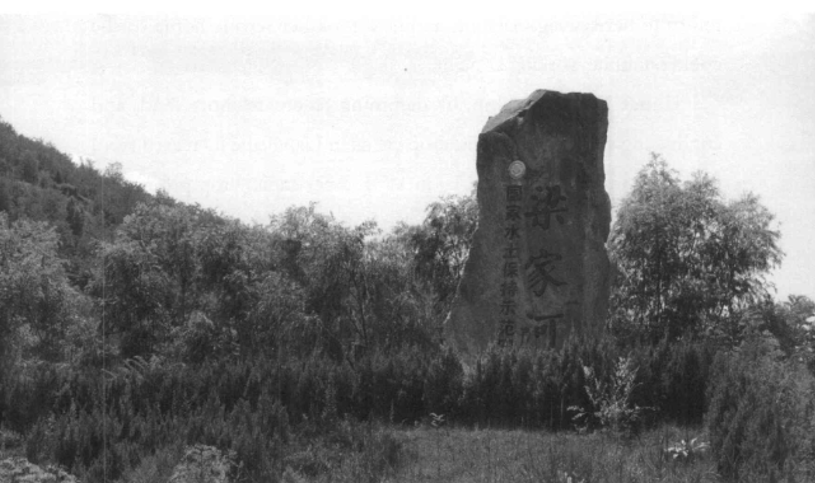From 1969 to 1975, Xi Jinping lived in Liangjiahe, a small village in China's Shaanxi Province as an "educated youth." In the village, Xi joined the Communist Party of China and was elected Party branch secretary. The following is an excerpt from LIANGJIAHE VILLAGE:A STORY OF CHINESE PRESIDENT XI JINPING, published by FOREIGN LANGUAGES PRESS in 2018.
Tidy courtyards, new stone cave homes, brick-laid houses with gray-tiled roofs, asphalt-surfaced roads... This was Liangjiahe, transformed from an impoverished remote village in Northern Shaanxi to a relatively prosperous village with a per-capita annual income of more than 10,000 yuan. This transformation is a microcosm of general social progress in China, and especially tells the brilliant story of the reforms and developments in rural China. Today, this village, Xi Jinping's second hometown, continues its inspiring story.
The reform and opening-up policy has brought a better life to the village of Liangjiahe.
Liu Ruilian was born into an impoverished family. In her memories, she and her three siblings were barefooted in summertime, shared one bedcover among themselves at night, and considered steamed buns of fine wheat flour a luxury.
At 17, she was married to Gong Zhengfu in Liangjiahe. Her married life was no better, often with only wild herbs on the table. Liu said, one of those wild herbs was known as "Foreign Brain Twigs," prickly in the mouth, bitter to the tongue, and tough on the stomach. The bitter herb would leave her with a bloated belly and even swollen hands and face if she ate it for a couple of days.
After Xi set up the iron foundry, retail store and sewing workshop, the unexpected offer of employment in the sewing workshop gave Liu an excited and sleepless night.

The valley outlet at Liangjiahe
Compensation at the sewing workshop was based on piecework — two work points per piece of clothing sewn. In order to earn more work points, Liu, after talking with her husband, purchased a "Standard" brand sewing machine. She often rushed her meals in order to return to her sewing machine, and now took her sewing home so she could continue working at night.
Under Xi's leadership, by damming to create more land, and conducting various industries, crop yields in Liangjiahe increased from 54,732 kg in 1971 to 89,973 kg in 1974, a per-capita crop production of 344.5 kg, with a daily work dividend of over 72fen.
In the spring of 1984, Liu first heard about the "household contract system." Initially, she was unaware of the significance of this new system, which however was launching revolutionary changes in rural China.
"Everyone's gone crazy, rising early and retiring late, plowing their wheat fields an extra time, raking and collecting fertile soil from the land that's been lying wild and fallow for years and carting such soil to their own fields. The soil in wheat fields has become as soft as cotton and their plot ridges as neat as if licked by dogs. Aiya, are they tilling or embroidering their land? Look, every plot was weeded three times and fertilized one extra time! Holy cow! Several more years like this, many in the village will become wealthy!" Like those farmers described by Lu Yao in his famous novel World of the Ordinary, Liu also harvested material bounty through her hard work.
Within two years, the granary was too full to hold any more grain. The surplus had to go into fertilizer bags, stacked in vacant cave dwellings. Eyeing her bumper harvests, Liu's heart was truly tickled.
Yet, unlike their stocked granary, the villagers' wallets still remained flat. Liu thought of going to work in the city, after seeing others do so. During the slow farming season, she and her husband went to work in the county seat of Yanchuan. They wrapped popsicles and did other odd jobs for extra income. They were among the "first generation of migrant rural workers" in Liangjiahe. After 1990, Liu never again had to fret over any material lack. For the first time, she felt happy and satisfactory in her life.
Life in her family improved day by day. Her two sons were working in construction and interior design; her daughter had her own company. The whole family celebrated their festive reunion every Spring Festival. She used the festive occasion to educate her children on maintaining frugality: "The sweet life of today grew out of the bitter roots of yesterday. It worries me that you may forget your roots..."
Reforms rendered unprecedented changes to the village; while opening-up provided endless opportunities.
The hills and dales might have remained more or less the same, but the farmers were no longer those "bent over dusty soil, backs arched skyward."
In 1993, Xi, then Party secretary of the City of Fuzhou, returned to Liangjiahe. To his great satisfaction, all villagers had no worry about their food and clothing. For such a long time, it had been the villagers' biggest dream to be free of hunger. What joy it was to have that dream completely fulfilled!

